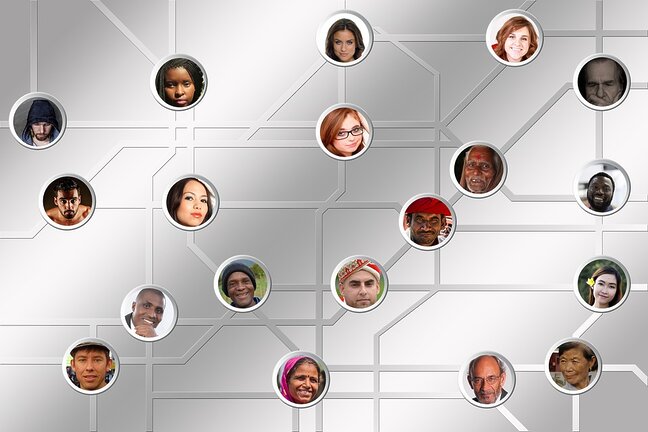Table of Contents
- Introduction
- Dos of Tweeting
- Don'ts of Tweeting
- Dos of Engaging with Others
- Don'ts of Engaging with Others
- Conclusion
Introduction
Twitter is a popular social media platform that enables users to share their thoughts and engage with others in real-time. However, it's important to follow proper Twitter etiquette to maintain a positive and respectful online environment. This guide will outline the dos and don'ts of tweeting and engaging with others on Twitter.
Dos of Tweeting
1. Use appropriate language and tone:
When tweeting, ensure your language is respectful and avoid using offensive or derogatory terms. Maintain a positive tone and approach discussions with empathy and understanding.
2. Proofread your tweets:
Before hitting the tweet button, take a moment to proofread your message. Check for any spelling or grammatical errors to maintain a professional image.
3. Use hashtags effectively:
Hashtags help categorize your tweet and make it discoverable by others interested in the same topic. Use relevant and concise hashtags to increase the reach and engagement of your tweets.
4. Give credit when sharing content:
If you share someone else's tweet or content, make sure to give them credit by mentioning their username or including a link to their original tweet. This shows respect for their work and helps build positive relationships.
5. Engage in meaningful conversations:
Participate in discussions related to your interests by replying to tweets or joining relevant Twitter chats. Contribute valuable insights and be open to different perspectives to foster a healthy and engaging environment.
Don'ts of Tweeting
1. Engage in online arguments:
Avoid getting into heated arguments or personal attacks on Twitter. If you encounter a disagreement, try to resolve it respectfully through constructive dialogue or choose to disengage if necessary.
2. Overuse abbreviations and jargon:
While it's common to use abbreviations and jargon on Twitter due to character limitations, avoid overusing them to the point where your tweets become difficult to understand for others. Strive for clarity in your communication.
3. Overshare personal information:
Protect your privacy by refraining from sharing sensitive personal information, such as your address or phone number, on Twitter. Be cautious about the information you disclose to maintain your safety online.
4. Spam or excessively self-promote:
Avoid bombarding your followers' timelines with excessive self-promotion or spamming them with repetitive content. Maintain a balance between sharing valuable information and promoting your own work.
5. Blindly retweet without verification:
Before retweeting content, ensure it comes from a credible source. Take a moment to verify the information to avoid spreading misinformation or fake news.
Dos of Engaging with Others
1. Reply to mentions and direct messages:
Acknowledge and respond to mentions and direct messages in a timely manner. Engage in conversations with your followers to build relationships and show appreciation for their interest.
2. Retweet and share valuable content:
Support others by retweeting or sharing their valuable content. This helps amplify their message and encourages a sense of community on Twitter.
3. Use the "like" button:
Show appreciation for tweets you find interesting or helpful by clicking the "like" button. This simple gesture can go a long way in fostering positive interactions and building connections.
4. Follow and engage with influencers in your field:
Identify and follow influencers or thought leaders in your area of interest. Engage with their tweets by commenting or retweeting, which can help you expand your network and gain insights from industry experts.
5. Practice empathy and respect:
Approach conversations with empathy, respect, and an open mind. Be considerate of others' opinions, even if they differ from yours. Foster a culture of inclusivity and understanding on Twitter.
Don'ts of Engaging with Others
1. Engage in online harassment or bullying:
Under no circumstances should you engage in online harassment or bullying. Treat others with kindness and report any abusive behavior to Twitter for necessary action.
2. Hijack conversations or force your opinion:
Avoid hijacking conversations or forcefully imposing your opinion on others. Respect diverse perspectives and engage in constructive dialogue rather than attempting to dominate a discussion.
3. Publicly criticize or shame others:
Resist the urge to publicly criticize or shame others on Twitter. If you have concerns or disagreements, address them privately through direct messages or find a more constructive way to express your viewpoint.
4. Spam others with unsolicited messages:
Avoid sending unsolicited direct messages to other users, especially for promotional purposes. Respect others' privacy and seek permission before initiating private conversations.
5. Ignore or dismiss feedback:
When receiving feedback or constructive criticism, don't ignore or dismiss it. Instead, take the opportunity to learn and grow. Engage in a respectful discussion to address concerns and improve your interactions on Twitter.
Conclusion
By following these dos and don'ts of tweeting and engaging with others on Twitter, you can create a positive and respectful online presence. Remember to be mindful of your language, engage in meaningful conversations, and treat others with respect. Twitter can be a valuable platform for connecting with others, sharing ideas, and learning from diverse perspectives when used with proper etiquette.
